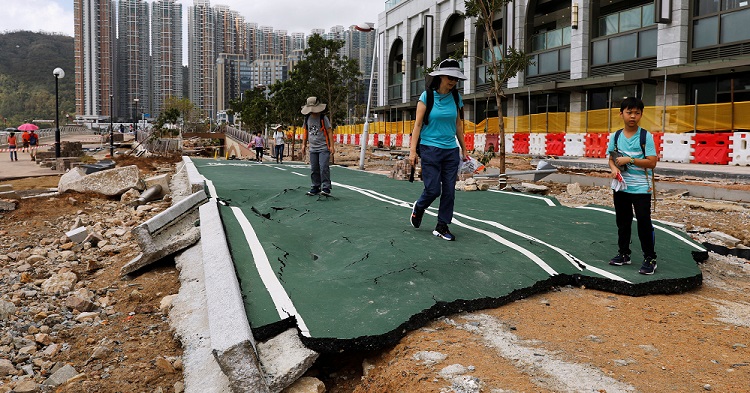In the aftermath of Typhoon Mangkhut, Hong Kong needs to ramp up its typhoon and disaster planning in order to become a "resilient city" just like its other Asian counterparts.
This was a proposal among experts who have pointed out that the port city should follow the example of Singapore, Kyoto and other communities which are now implementing key measures to mitigate the devastating effects of typhoons and other natural disasters.
According to a report by the Southern China Morning Post, among the first steps Hong Kong must carry out is to create an official post that will be primarily tasked to respond to major emergency situations or calamities.
"A big corporate wouldn't operate without a chief risk officer, so why wouldn't a city have a chief resilience officer?" noted Michael Berkowitz, who heads 100 Resilient Cities, a network under the Rockefeller Foundation which has been pushing for the creation of such posts.
Berkowitz said the "chief resilience officer" would be responsible for coordinating efforts among Hong Kong's various government offices and encouraging discussion among stakeholders,
The goal of these conversations, he explained, is come up with smart and holistic strategies that will enable cities particularly in disaster-prone areas to better respond to situations of "sudden upheaval."
If Hong Kong really wants to become a "resilient city," Berkowitz said its typhoon and disaster planning initiatives should be implemented by this resilience officer.
Melaka, Chennai, and Jakarta are among the latest cities to create such as a post, he said.
Berkowitz, however, stressed that urban resilience doesn't only refer to the ability of cities to bounce back after disasters.
"Resilience comprises many aspects that make a city able to survive anything, including climate-related events like typhoons and flooding," he said.
In the meantime, Hong Kong is already taking the necessary steps to transform it into "resilient city" by focusing on typhoon and disaster planning, among others.
A study conducted by the Hong Kong Polytechnic University last year entitled "Making Hong Kong A Resilient City: A Preliminary Assessment," revealed that the city's integrated disaster resilience "is satisfactory."
"The evident strengths of Hong Kong are proactive protection of natural ecosystems (Essential 5) and solid society capacity for resilience (Essential 7)," the study reported.
On the other hand, the assessment also pointed out some factors that have held back the city from achieving a better climate-resilient status.
"The most obvious shortcomings preventing Hong Kong from qualifying as a resilient city are its inadequate identification, understanding and leveraging of current and future risk scenarios (Essential 2) and weaker institutional capacity for resilience (Essential 6)," the study said.
With these developments, experts agree that Hong Kong can become a truly "resilient city" if it continues to strengthen its disaster and typhoon planning.






